0
Report
Community:
Feb 17, 2023
The findings from a Syracuse University study linking universal school meal policies with improved school attendance for young students provides a strong case for expanding free school meals, according to school nutrition and attendance experts.
Authored by: Anna Merod for K-12 DIVE
Topics: Attendance, Early childhood, Education, Food insecurity, Health, Legislation & Policy, Low-income, Nutrition, Youth
 Shared by Sandra Ware
Shared by Sandra Ware
Sandra Ware posted a
on Feb 23, 2023
The findings from a Syracuse University study linking universal school meal policies with improved school attendance for young students provides a strong case for expanding free school meals, according to school nutrition and attendance experts.
0
Video
Community:
May 18, 2021
Roundtable: Cross-Sector Efforts on COVID-19.
More than a year into a global pandemic, we continue to see disparities in infections, access to care, and economic supports, with an unequal burden on low-income and communities of color. This roundtable will discuss perspectives from housing, health, and policy for what we have seen and what may be to come, as well as ideas we may enact to create more permanent solutions, in addition to addressing current crises.
Authored by: CLPHA
Topics: CLPHA, Community development, COVID-19, Education, Health, Housing, Partnerships
 Shared by Housing Is
Shared by Housing Is
Housing Is posted a
on May 18, 2021
Roundtable: Cross-Sector Efforts on COVID-19.
More than a year into a global pandemic, we continue to see disparities in infections, access to care, and economic supports, with an unequal burden on low-income and communities of color.
0
Report
Community: Youth
Dec 1, 2020
420,000.
Based on the new report, "Lost in the Masked Shuffle & Virtual Void: Children and Youth Experiencing Homelessness Amidst the Pandemic" from SchoolHouse Connection and Poverty Solutions at the University of Michigan, that’s how many fewer children and youth experiencing homelessness have been identified and enrolled by schools so far this school year.
According to our data and insights - gathered from educators and homeless liaisons across 49 states - the number of children, youth, and families experiencing homelessness has likely increased due to the economic crisis. Yet, because of COVID-19 challenges in identifying children and youth experiencing homelessness, hundreds of thousands may not be getting the education and support they need - from internet access, to housing, to food, to child care.
What’s more, only 18% of respondents indicated that federal coronavirus relief education funding provided by the CARES Act is being used to meet the needs of students experiencing homelessness.
To break generational cycles of homelessness, we must take swift action to support the increasing number of children, youth, and families in need. Check out our report to learn more and take action. We have included recommendations for Congressional leaders, state and local educational agencies, homeless, housing, food, and other relief agencies, and philanthropic organizations.
Authored by: Poverty Solutions at THE UNIVERSITY OF MICHIGAN & SCHOOLHOUSE CONNECTION
Topics: Attendance, Child welfare, Early childhood, Education, Funding, Health, Homelessness, Low-income, Stability, Youth
 Shared by Housing Is
Shared by Housing Is
Housing Is posted a
on Dec 1, 2020
Poverty Solutions at THE UNIVERSITY OF MICHIGAN & SCHOOLHOUSE CONNECTION
0
Video
Community:
Jun 12, 2020
June 4-5, Hosted Virtually via Zoom | Opening remarks by CLPHA President Stephen Norman and CLPHA Executive Director Sunia Zaterman followed by a roundtable discussion featuring voices from the housing, health, and education sectors. We kicked off the Summit with a Plenary Roundtable (starting at 20:53): Cross-Sector Crisis Response -- What We Are Learning About Cross-Sector Collaboration from COVID-19. About the panel: Partnerships have always been critical to improving life outcomes for low-income individuals and families. The global coronavirus pandemic has highlighted how crucial these partnerships are and how fractured our safety net systems remain. The health, economic, and educational consequences of COVID-19 have further imperiled already vulnerable people who face new and worsening challenges. Collaboration at the intersection of housing, education, and public health has been key to effective community responses to the pandemic. This roundtable will discuss how COVID-19 has compelled organizations to work differently to serve those in need and what lasting changes we can anticipate across sectors in the coming months and years. Panelists will specifically address the issues of out-of-school time, public health, connectivity, and social isolation for low-income residents.
Authored by: CLPHA
Topics: Education, Health, Housing, Summit 2020
 Shared by Steve Lucas
Shared by Steve Lucas
Steve Lucas posted a
on Jun 12, 2020
June 4-5, Hosted Virtually via Zoom | Opening remarks by CLPHA President Stephen Norman and CLPHA Executive Director Sunia Zaterman followed by a roundtable discussion featuring voices from the housing, health, and education sectors.
0
Report
Community:
Jun 6, 2019
Trends in Housing Assistance and Who it Serves
Authored by: PAHRC
Topics: Community development, Disabilities, Education, Funding, Health, Homelessness, Housing, Legislation & Policy, Low-income, Partnerships, Research, Seniors, Workforce development, Youth
 Shared by Keely Stater
Shared by Keely Stater
Keely Stater posted a
on Sep 10, 2019
Trends in Housing Assistance and Who it Serves
0
News Article
Community:
Jun 12, 2019
About half of the student body at one Ohio elementary school has witnessed drug use at home. Educators spend time every day teaching the children how to cope.
Authored by: Dan Levin for The New York Times
Topics: Child welfare, Early childhood, Education, Health, Substance abuse, Youth
 Shared by Housing Is
Shared by Housing Is
Housing Is posted a
on Jun 13, 2019
Dan Levin for The New York Times
About half of the student body at one Ohio elementary school has witnessed drug use at home. Educators spend time every day teaching the children how to cope.
0
News Article
Community:
Mar 18, 2019
It’s a prescription guaranteed to develop healthy brains, refine motor skills and prepare kids for school, doctors say. But few parents expect a physician to hand their children a book at their first wellness checkup at Nationwide Children’s Hospital in Columbus.
Authored by: Alissa Widman Neese for The Columbus Dispatch
Topics: Child welfare, Early childhood, Education, Health, Literacy, Low-income, Partnerships
 Shared by Housing Is
Shared by Housing Is
Housing Is posted a
on May 30, 2019
Alissa Widman Neese for The Columbus Dispatch
It’s a prescription guaranteed to develop healthy brains, refine motor skills and prepare kids for school, doctors say. But few parents expect a physician to hand their children a book at their first wellness checkup at Nationwide Children’s Hospital in Columbus.
0
Video
Community:
May 24, 2019
Building Internal PHA Capacity for Cross-Sector Partnerships: How to creatively expand and enhance internal capacity to support cross-sector partnerships.
Authored by: Housing Is, CLPHA
Topics: CLPHA, Education, Health, Housing, Partnerships
 Shared by Housing Is
Shared by Housing Is
Housing Is posted a
on May 24, 2019
Building Internal PHA Capacity for Cross-Sector Partnerships: How to creatively expand and enhance internal capacity to support cross-sector partnerships.
0
Report
Community:
Recent research has begun to focus on the impact of housing instability, in its many forms, on child health and development. It is hypothesized that young children are at greater risk of adverse effects of living environments, as this time period serves as a critical window for establishing socialization and learning habits. Additionally, the effects of housing instability may be compounded when combined with other challenges faced by low-income families, such as lack of resources. Previous studies have found that housing instability is associated with deficits in overall academic achievement, emotional regulation, and verbal abilities.
Authored by: International Public Health Journal
Topics: Child welfare, Education, Health, Homelessness, Housing, Research
 Shared by Housing Is
Shared by Housing Is
Housing Is posted a
on May 9, 2019
International Public Health Journal
Recent research has begun to focus on the impact of housing instability, in its many forms, on child health and development.
0
News Article
Community:
Apr 30, 2019
Jonathan Rose is on a mission is to develop "communities that enhance opportunity for all." As the Founder and President of Jonathan Rose Companies, his firm’s work has touched many aspects of community health; working with cities and not-for-profits to build affordable and mixed-income housing, cultural, health and educational infrastructure, and advocates for neighborhoods to be enriched with parks and open space, mass transit, jobs, and healthy food
Authored by: Afdhel Aziz for Forbes
Topics: Education, Health, Housing, Partnerships, Place-based
 Shared by Housing Is
Shared by Housing Is
Housing Is posted a
on Apr 30, 2019
Jonathan Rose is on a mission is to develop "communities that enhance opportunity for all." As the Founder and President of Jonathan Rose Companies, his firm’s work has touched many aspects of community health; working with cities and not-for-profits to build affordable and mixed-income ho
0
Publication
Community:
Apr 24, 2019
Are you a Pennsylvanian without a high school diploma? Then sign up with AmeriHealth Caritas for Medicaid and the plan will help you get your GED. Having trouble getting a job in Ohio? If you are enrolled in CareSource, the Life Services JobConnect in CareSource’s managed care organization (MCO) will arrange job coaching and other employment services at no cost. These are not examples of corporate philanthropy. Rather, they reflect a growing recognition in the health care sector, especially among managed care organizations, that good health—and achieving lower medical costs—requires a focus on the nonmedical factors known as social determinants that affect health and well-being.
Authored by: Stuart Butler for news@Jama
Topics: Education, Food insecurity, Health, Housing, Low-income, Nutrition, Research
 Shared by Housing Is
Shared by Housing Is
Housing Is posted a
on Apr 25, 2019
Stuart Butler for news@Jama
Are you a Pennsylvanian without a high school diploma? Then sign up with AmeriHealth Caritas for Medicaid and the plan will help you get your GED. Having trouble getting a job in Ohio?
0
News Article
Community:
Mar 19, 2019
For 17 years, physicians, nurse practitioners and pediatric residents at our hospital, and presently, at more than 80 locations throughout the region, have been participating in Reach Out and Read of Greater Philadelphia (www.reachoutandreadphilly.org), a simple yet profound way to harness the power of a book to potentially alter a child’s health trajectory.
Authored by: Daniel Taylor for The Inquirer
Topics: Early childhood, East Coast, Education, Grade-level proficiency, Health, Literacy, Low-income
 Shared by Housing Is
Shared by Housing Is
Housing Is posted a
on Apr 18, 2019
Daniel Taylor for The Inquirer
For 17 years, physicians, nurse practitioners and pediatric residents at our hospital, and presently, at more than 80 locations throughout the region, have been participating in Reach Out and Read of Greater Philadelphia (www.reachoutandreadphilly.org), a simple yet profound way to harness the power
0
Interactive
Community:
The Legal Bibliography is collection of 100+ papers, toolkits and other materials focused on privacy, consent and policy documentation. Co-developed by the Network for Public Health Law and Data Across Sectors for Health (DASH), the Bibliography is a growing resource for lawyers and community data practitioners, intended to support local collaboratives in their efforts to share data across sectors.
Authored by: Data Across Sectors for Health (DASH) and Network for Public Health Law (NPHL)
Topics: Criminal justice, Data sharing, Education, Health, Homelessness, Housing, Mental health, Partnerships, Safety
 Shared by Housing Is
Shared by Housing Is
Housing Is posted a
on Apr 8, 2019
Data Across Sectors for Health (DASH) and Network for Public Health Law (NPHL)
The Legal Bibliography is collection of 100+ papers, toolkits and other materials focused on privacy, consent and policy documentation.
0
News Article
Community:
Apr 4, 2019
The nonprofit LIFT Orlando and AdventHealth have started construction on a “first of its kind” early learning center in the long-neglected West Lakes neighborhood south of Camping World Stadium, with an opening expected by August. The center will provide basic education as well as health and wellness programs, an on-site doctor or advanced nurse practitioner, mental health counseling and other services beyond the classroom. It can enroll up to 220 children from age 6 weeks to 5 years, with half of the openings reserved for kids from the West Lakes area, who will be accepted regardless of their families’ ability to pay.
Authored by: Kate Santich for Orland Sentinel
Topics: Child welfare, Early childhood, Education, Health, Low-income, Partnerships, Place-based
 Shared by Housing Is
Shared by Housing Is
Housing Is posted a
on Apr 4, 2019
Kate Santich for Orland Sentinel
The nonprofit LIFT Orlando and AdventHealth have started construction on a “first of its kind” early learning center in the long-neglected West Lakes neighborhood south of Camping World Stadium, with an opening expected by August.
0
Publication
Community:
Apr 4, 2019
The nation has large, pressing infrastructure needs, which are often felt most acutely in low-income communities due to decades of policy choices and lack of public and private investment. As federal lawmakers consider investing in infrastructure, a core priority should be to direct substantial resources across a range of areas to low-income communities, which could expand their access to safe living conditions and economic opportunity.
Authored by: Chye-Ching Huang and Roderick Taylor for the Center on Budget and Policy Priorities
Topics: Education, Funding, Health, Housing, Legislation & Policy, Low-income, Safety, Transportation
 Shared by Housing Is
Shared by Housing Is
Housing Is posted a
on Apr 4, 2019
Chye-Ching Huang and Roderick Taylor for the Center on Budget and Policy Priorities
The nation has large, pressing infrastructure needs, which are often felt most acutely in low-income communities due to decades of policy choices and lack of public and private investment.
0
News Article
Community:
Mar 13, 2019
Universal meals allow schools to build the program into their overall curriculum, "creating a learning lab for healthy eating and a mealtime experience where every kid is equal and enjoys their meals together," according to Hunger Free Vermont, which says nearly a quarter of schools in the state offer them and studies show that the programs "increase participation, leading to better student health and learning, and a strong school meals business. When participation is up, school meal programs have more resources to invest in even higher quality food, including many local foods."
Authored by: Chris Mays for Brattleboro Reformer
Topics: Child welfare, Education, Food insecurity, Funding, Health, Nutrition
 Shared by Housing Is
Shared by Housing Is
Housing Is posted a
on Mar 19, 2019
Chris Mays for Brattleboro Reformer
Universal meals allow schools to build the program into their overall curriculum, "creating a learning lab for healthy eating and a mealtime experience where every kid is equal and enjoys their meals together," according to Hunger Free Vermont, which says nearly a quarter of schools in the
0
Publication
Community:
Feb 28, 2019
This brief presents a new approach to support the development of early math skills in young children. The approach synthesizes the influence of parents, home environment, and children’s health care providers. The brief draws on research to explain (1) why it is important to support early math development, (2) what early math is (and isn’t), (3) how early math and literacy development intertwine, and (4) the important role parents play in their child’s development. The brief ends with a description of a promising approach to support early childhood math development that leverages communication between parents and health care providers and book sharing during well-child primary care visits.
Authored by: Mathematica Policy Research
Topics: Child welfare, Early childhood, Education, Health, Literacy, Partnerships
 Shared by Housing Is
Shared by Housing Is
Housing Is posted a
on Mar 18, 2019
Mathematica Policy Research
This brief presents a new approach to support the development of early math skills in young children. The approach synthesizes the influence of parents, home environment, and children’s health care providers.
0
News Article
Community:
Oct 1, 2018
When children get sick from poor living conditions inside their rundown apartments, they miss school. And when 95 percent of students of one school live in the same apartment complex—where evictions are routine and black mold is rampant—classrooms are often left empty.
Authored by: Jamie Hwang for the American Bar Association Journal
Topics: Attendance, Child welfare, Education, Health, Housing, Low-income, Partnerships, Place-based, Youth
 Shared by Housing Is
Shared by Housing Is
Housing Is posted a
on Mar 11, 2019
Jamie Hwang for the American Bar Association Journal
When children get sick from poor living conditions inside their rundown apartments, they miss school. And when 95 percent of students of one school live in the same apartment complex—where evictions are routine and black mold is rampant—classrooms are often left empty.
0
News Article
Community:
Feb 14, 2019
This week, the Food Research & Action Center in Washington, D.C., published its annual School Breakfast Scorecard, analyzing school breakfast participation throughout the country for the 2017-2018 school year. Here are six things to know from the report.
Authored by: Benita Gingerella for Food Service Director
Topics: Early childhood, Education, Food insecurity, Health, Nutrition, Youth
 Shared by Housing Is
Shared by Housing Is
Housing Is posted a
on Feb 25, 2019
Benita Gingerella for Food Service Director
This week, the Food Research & Action Center in Washington, D.C., published its annual School Breakfast Scorecard, analyzing school breakfast participation throughout the country for the 2017-2018 school year. Here are six things to know from the report.
0
Policy Brief
Community:
This annotated resource compilation is intended to help state and local agencies access information and resources needed to better understand the federal legal protections and requirements associated with datasets collected by federal agencies or as part of a federally funded program.
Authored by: The Network for Public Health Law
Topics: Data sharing, Disabilities, Early childhood, Education, Health, Homelessness, Legislation & Policy, Post-secondary
 Shared by Mica O'Brien
Shared by Mica O'Brien
Mica O'Brien posted a
on Feb 20, 2019
The Network for Public Health Law
This annotated resource compilation is intended to help state and local agencies access information and resources needed to better understand the federal legal protections and requirements associated with datasets collected by federal agencies or as part of a federally funded program.
0
Podcast
Community:
This episode features Martin Love, CEO and Jessica Osborne-Stafsnes, Program Manager at the North Coast Health Improvement and Information Network (NCHIIN) – a non-profit health information exchange in Humboldt County, CA. NCHIIN focuses on exchanging information across multiple sectors – including social care, medical care, behavioral health, criminal justice, education and more – to support care coordination and improve health. As an awardee of DASH CIC-START, NCHIIN worked with partners to add new organizations, sectors, and data streams to ACT.md, their care coordination and alerts notification system. They provided insights about engaging partners to incorporate the system into their workflows to provide more holistic care for patients, especially those with complex health and social needs.
Authored by: All In: Data for Community Health
Topics: Criminal justice, Data sharing, Education, Health, Mental health, Partnerships, West Coast
 Shared by Mica O'Brien
Shared by Mica O'Brien
Mica O'Brien posted a
on Feb 20, 2019
All In: Data for Community Health
This episode features Martin Love, CEO and Jessica Osborne-Stafsnes, Program Manager at the North Coast Health Improvement and Information Network (NCHIIN) – a non-profit health information exchange in Humboldt County, CA.
0
News Article
Community:
Jan 25, 2019
A whole host of factors — such as friends, housing and transportation — affect a person’s health and how much they need the social safety net. It’s time the government’s big health insurance programs took this reality into account, some lawmakers and policymakers are starting to argue.
Authored by: Paige Winfield Cunningham for The Washington Post
Topics: Asset building, Cost effectiveness, Disabilities, Education, Food insecurity, Funding, Health, Homelessness, Housing, Legislation & Policy, Low-income, Medicaid / Medicare, Seniors, Transportation, Workforce development
 Shared by Housing Is
Shared by Housing Is
Housing Is posted a
on Jan 25, 2019
Paige Winfield Cunningham for The Washington Post
A whole host of factors — such as friends, housing and transportation — affect a person’s health and how much they need the social safety net. It’s time the government’s big health insurance programs took this reality into account, some lawmakers and policymakers are starting to argue.
0
Report
Community:
Jan 7, 2019
When the school day ends, far too many children return home to empty refrigerators and bare cupboards. The federal Afterschool Nutrition Programs provide healthy meals and snacks to children to ensure they are fed after school (and on weekends and during school holidays). According to FRAC’s latest Afterschool Suppers: A Snapshot of Participation report, the District of Columbia had the highest participation in the nation of children in the Afterschool Supper Program, with a 31.6 percent increase in participation between October 2016 and October 2017.
Authored by: Paige Pokorney for Food Research and Action Center (FRAC)
Topics: Child welfare, East Coast, Education, Food insecurity, Health, Low-income, Nutrition, Out-of-school time
 Shared by Housing Is
Shared by Housing Is
Housing Is posted a
on Jan 16, 2019
Paige Pokorney for Food Research and Action Center (FRAC)
When the school day ends, far too many children return home to empty refrigerators and bare cupboards. The federal Afterschool Nutrition Programs provide healthy meals and snacks to children to ensure they are fed after school (and on weekends and during school holidays).
0
News Article
Community:
Jan 6, 2019
These programs, available at 10 Wichita middle and high schools so far, include extended serving times in cafeterias, grab-and-go breakfasts from carts or kiosks, and “second-chance breakfast,” in which students are offered breakfast after homeroom or first period.
Authored by: Suzanne Perez Tobias for The Wichita Eagle
Topics: Child welfare, Education, Food insecurity, Health, Low-income, Midwest, Nutrition, Youth
 Shared by Housing Is
Shared by Housing Is
Housing Is posted a
on Jan 16, 2019
Suzanne Perez Tobias for The Wichita Eagle
These programs, available at 10 Wichita middle and high schools so far, include extended serving times in cafeterias, grab-and-go breakfasts from carts or kiosks, and “second-chance breakfast,” in which students are offered breakfast after homeroom or first period.
0
News Article
Community:
Jan 10, 2019
The federally funded School Breakfast Program is critical to addressing childhood hunger and food insecurity. While most schools participate in the program, many students are reluctant to eat breakfast in the cafeteria before school starts — the traditional service delivery model for school breakfast. To combat this, four of the top organizations in education, food insecurity and school nutrition came together to form Partners for Breakfast in the Classroom, with the support of the Walmart Foundation. The Partners, which include FRAC, the School Nutrition Foundation, the NEA Foundation and the National Association of Elementary School Principals, are working to address barriers to school breakfast consumption through an innovative solution: serving breakfast in the classroom.
Authored by: Etienne Melcher Pilbin for Medium
Topics: Child welfare, Education, Food insecurity, Health, Low-income, Nutrition
 Shared by Housing Is
Shared by Housing Is
Housing Is posted a
on Jan 16, 2019
Etienne Melcher Pilbin for Medium
The federally funded School Breakfast Program is critical to addressing childhood hunger and food insecurity.


 Shared by Sandra Ware
on Feb 23, 2023
Shared by Sandra Ware
on Feb 23, 2023

 Shared by Housing Is
on May 18, 2021
Shared by Housing Is
on May 18, 2021
 Shared by Housing Is
on Dec 1, 2020
Shared by Housing Is
on Dec 1, 2020
 Shared by Steve Lucas
on Jun 12, 2020
Shared by Steve Lucas
on Jun 12, 2020

 Shared by Keely Stater
on Sep 10, 2019
Shared by Keely Stater
on Sep 10, 2019

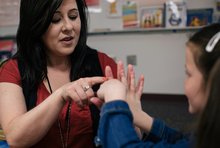
 Shared by Housing Is
on Jun 13, 2019
Shared by Housing Is
on Jun 13, 2019
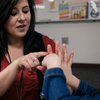
 Shared by Housing Is
on May 30, 2019
Shared by Housing Is
on May 30, 2019
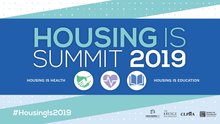
 Shared by Housing Is
on May 24, 2019
Shared by Housing Is
on May 24, 2019

 Shared by Housing Is
on May 9, 2019
Shared by Housing Is
on May 9, 2019

 Shared by Housing Is
on Apr 30, 2019
Shared by Housing Is
on Apr 30, 2019


 Shared by Housing Is
on Apr 25, 2019
Shared by Housing Is
on Apr 25, 2019
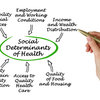
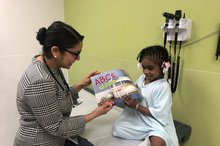
 Shared by Housing Is
on Apr 18, 2019
Shared by Housing Is
on Apr 18, 2019
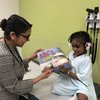
 Shared by Housing Is
on Apr 8, 2019
Shared by Housing Is
on Apr 8, 2019

 Shared by Housing Is
on Apr 4, 2019
Shared by Housing Is
on Apr 4, 2019

 Shared by Housing Is
on Apr 4, 2019
Shared by Housing Is
on Apr 4, 2019

 Shared by Housing Is
on Mar 19, 2019
Shared by Housing Is
on Mar 19, 2019
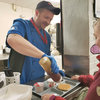
 Shared by Housing Is
on Mar 18, 2019
Shared by Housing Is
on Mar 18, 2019

 Shared by Housing Is
on Mar 11, 2019
Shared by Housing Is
on Mar 11, 2019

 Shared by Housing Is
on Feb 25, 2019
Shared by Housing Is
on Feb 25, 2019
 Shared by Housing Is
on Jan 25, 2019
Shared by Housing Is
on Jan 25, 2019

 Shared by Housing Is
on Jan 16, 2019
Shared by Housing Is
on Jan 16, 2019


 Shared by Housing Is
on Jan 16, 2019
Shared by Housing Is
on Jan 16, 2019

 Shared by Housing Is
on Jan 16, 2019
Shared by Housing Is
on Jan 16, 2019